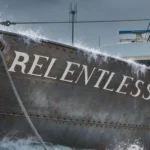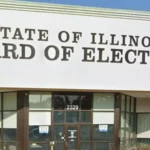
On January 10, the Supreme Court heard oral arguments in Glacier Northwest v. International Brotherhood of Teamsters, Local 174. This case focused on the rights of employers to collect damages in state court for property intentionally destroyed by union members during a strike. Landmark filed briefs criticizing the Washington Supreme Court’s radical ruling that shields unions from accountability for workplace destruction. The arguments yesterday seemed to display a rare consensus among the justices that the Teamsters’ alleged conduct was clearly unprotected under the standards set by San Diego Building Trades Council v. Garmon. In the Garmon opinion, the Supreme Court interpreted the National Labor Relations Act in a way that preempts state regulation of conduct protected and even “arguably” protected by the Act. As Landmark raised in our brief, Garmon exists to prevent workplace violence and destruction, not to incentivize it.
Landmark opposes workplace violence and supports the right to strike peacefully. These aims are by no means contradictory, but that did not stop the Left from making outlandish, inflammatory claims about this case in the lead up to oral arguments. They promoted the idea that the right to strike itself was vulnerable in this case- an improbable outcome in even a worst-case, nuclear scenario for unions at the Court. This tone colored media coverage. One writer for CBS warned that a “decision in favor of Glacier could set a legal precedent enabling the shipping giant to effectively block a strike.” But Glacier consistently based its arguments in the text of the National Labor Relations Act, the law that protects workers’ right to strike, and in Garmon, one of the seminal cases in American labor law. And Glacier did not call for Garmon to be overruled. So Glacier was not arguing for some radical departure from labor protections, as some claim, rather an interpretation of Garmon consistent with property rights and the prevention of violence.
Vox’s Ian Millhiser also sounded the alarm about Glacier. Millhiser routinely warns readers that the Court’s conservatives are plotting something diabolical. From warning of the Justices “handcuff[ing] the Clean Water Act” to “gut[ting] Medicaid” and “lying about the facts” of Kennedy v. Bremerton, his list of bad-faith attacks on Textualists is extensive. In this instance, he claims that the Supreme Court’s high likelihood to rule that state courts can adjudicate tort claims related to striking is due to a lack of judicial humility in deferring to expert institutions like the National Labor Relations Board. This makes conservatives’ distrust of the administrative state sound like arrogance instead of a genuine philosophic disagreement over the separation of powers. And the union provided a lot to disagree with, especially during oral arguments yesterday. The Teamsters’ counsel was so hesitant to concede any limits on property destruction during strikes that at one point Justice Ketanji Brown Jackson joked, “We agree that you can’t burn down the factory, right?” There seemed to be little appetite among the justices to do anything more than clarify some murky procedural implications of Garmon, stopping far short of the wholesale assault on labor unions many had warned of. In fact, the Washington Supreme Court’s ruling was so clearly a misunderstanding of the precedent that even the Biden Administration filed a brief arguing for the overturning of their decision.
The right to strike was never at the heart of the argument in Glacier, but basic tort law is. The clear mistakes made by the lower courts and the strength of former Solicitor General Noel Francisco’s arguments likely led to a very uneventful day of arguments for the Court’s Textualist majority. Justices Kavanaugh and Alito refrained from asking any questions at all, and the remaining Republican appointees only asked a few each. A main focus of the day was about what conduct is “arguably protected” in a strike under the NLRA and Garmon, not about the much more obvious question of whether tort suits could be filed for clearly unprotected conduct. Earlier this week, Millhiser tweeted that “[t]his Supreme Court is Dunning-Kruger on steroids” in relation to the likely outcome of the Glacier case. However, given that the Teamsters’ stance fared so poorly yesterday and stands in opposition to even the Democratic appointees in the Solicitor General’s office, this claim is beginning to seem rather ironic.
Read Landmark’s brief here and find the recording of the arguments here.
SUPPORT LANDMARK LEGAL FOUNDATION
We are truly facing existential threats to our individual rights and liberties, the Constitution, and our national character. If unchallenged, this assault on our very way of life will ruin our great nation. With your financial and moral support, Landmark is not going to let that happen without a fight. Will you join us?





